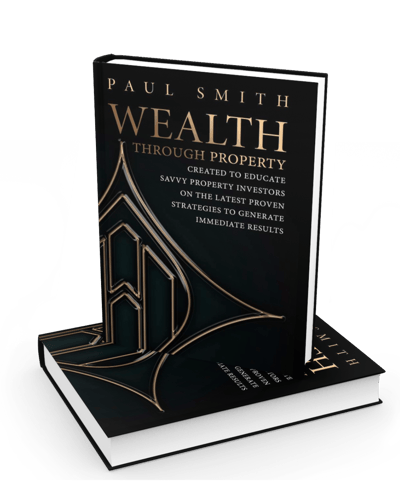Asset class investments are giving more people than ever before the chance to make their money go further.
There is a great amount of opportunities in investment, from property to stocks, shares and bonds.
In reality, over time, few investments have created as much wealth as investing in property.
This blog post explains why property is the best asset class for investors.
What is an asset class?
An asset class is a grouping of investments that exhibit similar characteristics and are subject to the same laws and regulations. Asset classes consist of instruments that often behave similarly to one another in the marketplace.
There is usually very little correlation (and sometimes negative correlation) between the asset classes.
Equities (e.g. stocks), fixed income (e.g. bonds), cash and cash equivalents, real estate, commodities, and currencies are common examples of asset classes.
What are the types of asset classes?
The most common types of asset classes are:
Cash and cash equivalents: Cash and cash equivalents represent actual cash on hand and securities that are similar to cash. It is considered a low risk investment as there is little chance of losing money. However, this peace of mind means that returns are lower than other asset classes.
Fixed income: This is an investment that pays a fixed income. This means lending money to an entity and in return money is paid at a fixed amount until the maturity date. This includes government and corporate bonds.
Equities: This includes owning shares in companies. Businesses, in order to expand and meet their objectives, often sell slices of ownership in exchange for cash to the general public. Accumulating these shares is a great way to profit from the success of a company.
Commodities: These are basic goods that can be transformed into other goods and services. These include metals, energy resources and agricultural goods. The return from these is often based on supply and demand, rather than profitability.
Real estate: Investing in property is a popular asset class. The 2004 Barker Report concluded that the UK needed to build an additional 120,000 new homes every year to keep up with demand. This figure has increased to 300,000 new homes each year. While supply slows and demand increases, this causes the value of homes to increase.
Other alternatives: This includes valuable inventory such as artwork, stamps and other tradable collectables. Some analysts also refer to an investment in hedge funds, venture capital, crowdsourcing and cryptocurrencies as examples of alternative investments.
What is property investment?
Property investment is the purchase of property with the goal of generating an income or revenue from it. It can take many forms, such as buying and renting out property, flipping property for a profit, or investing in property-related securities like REITs.
Property investors are seeking to capitalise on the appreciation potential of a property market, as well as the predictable income streams that property can generate over time.
It requires a thorough understanding of property prices, rental markets, and property maintenance in order to maximise returns.
When done right, property investment has the potential to produce significant long-term returns.
Why is property the best asset class for investors?
Real estate is a reliable asset class because it is a tangible asset (which are usually more stable than financial assets).
Property also allows individuals to borrow against the asset class, which increases leverage and potential returns.
According to Property Data, “Throughout modern history, there have been very few investment types available that offer the potential to generate significant returns on investment as real estate. Property, therefore, stands out as an attractive investment proposition for investors of all types and experience levels.”
What are the reasons for investing in property?
(a) It can provide a recurring income
Property can provide an income to support a lifestyle or lifestage (e.g. retirement). It can also add a level of consistency whilst other investments are susceptible to greater volatility.
Buy-to-let is the most common type of property investment that can generate regular income. But there are plenty of alternatives available.
(b) Investing for growth
Investing for growth is the process of making an investment with the sole intention of keeping it for an often undetermined period of time before selling it for a profit.
Investing into residential property developments are a perfect example. If an individual invests at the point of buying the land, the ultimate end goal is to not sell until homes are built on the land.
(c) Make an impact on future generations
As discussed previously on the Touchstone Education blog, there is a real housing crisis in the UK. There isn’t enough homes for rising populations and this is causing problems. Private investors in property therefore not only help homebuilders to build homes, but have a true impact on future generations.
(d) Diversification
Diversification in investment reduces the risk.
Property as an asset class has so much variety that regardless of what type of diversification the individual needs, there are a range of options available.
(e) It can be a liquid asset
The liquidity of an asset refers to whether it can be disposed of quickly and easily.
Typically, property was thought of as an illiquid asset. For instance an individual could purchase a residential house and release the cash when it was sold; this could often take several months.
Property investing can now be liquid, such as by buying shares in a real estate investment trust.
(f) Property investing is open to most
Property investment features a wide range of opportunities from property bonds to buy-to-let, to property flipping to off-plan investments.
It gives individuals multiple options regardless of the money they want to put in.
(g) Property is a necessity
Property is always needed, whether it is a roof over a person’s head, an office to work from, factories to produce goods, warehouses to store products and shops to sell them.
This means as an asset class property has a long lifespan.
How to get started in property investment
Touchstone Education founder Paul Smith said: “Property is the best long term asset class. The price of the average UK house has shifted significantly over time and it provides security that stocks, crypto and other assets do not.
“Property is also proven at being able to ride-out recessions meaning whilst the UK economy is struggling you can have confidence in property assets.”
Wealth Through Property is the UK’s leading 2-day property investment course. It is designed to provide you with specialist knowledge of proven investor strategies. Learn how to get started and build your property portfolio and gain real-world advice.
To make the first steps on your property journey, read this free Wealth Through Property e-book.
To find out more information about the property investment courses we offer call us on 01302 897131 or email office@touchstoneeducation.co.uk.










